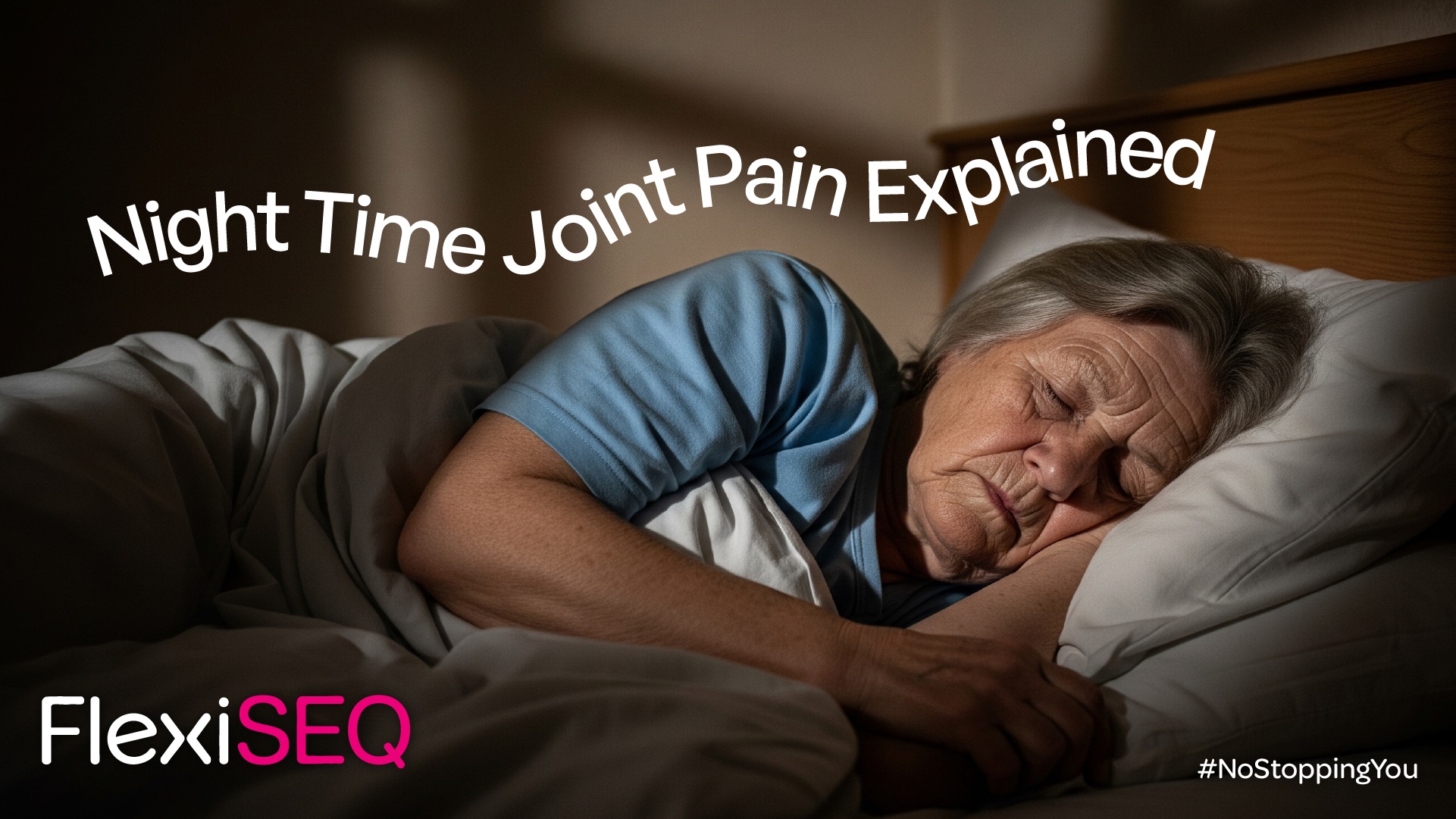Many people living with osteoarthritis or chronic joint pain will be familiar with an unpleasant sensation as the evening draws in: an increased stiffness and achiness that makes itself known just as you’re trying to wind down after a long day. But why then? Just what is it about night-time that heightens joint pain – and is there anything you can do about it?
The science behind joint pain at night
It’s not just arthritis pain that feels more acute during the evening hours – it’s any kind of pain, and the reasons for this are hard-wired into our biology.
As the sun sets and darkness falls, your body naturally adjusts to produce lower levels of the hormone cortisol, which is instrumental in reducing inflammation. Your cortisol levels are at their highest in the morning and drop during the day until they reach their lowest point in the evening, so there is less cortisol in your body to reduce inflammation in your joints, and you may experience a higher level of pain as a result.
Furthermore, once the duties and activities of daily life are out of the way – whether that be the tasks required by your job, or the everyday upkeep of your home – you may find that there is less going on to distract you from any aches and pains you might be feeling.
Finally, as the temperature of your environment and your body drop naturally at night-time, the lower levels of warmth can cause your joints to feel stiffer and more difficult to move, making any pain you might be experiencing more pronounced.
Ways to ease evening arthritis pain
Fortunately, there are a number of relatively easy things you can do to help minimise the likelihood and impact of arthritis pain at night:
Gentle exercise
You may feel like the last thing you want to do when you have stiff, sore joints is a bit of exercise, but this can make all the difference when it comes to loosening up your joints and easing the pain of evening arthritis.
Gentle exercises like going for a walk – or even just doing a few stretches or some yoga – will help to get the synovial fluid that lubricates your joints moving, while also loosening the muscles that support your joints. Also, even these gentle forms of exercise can help to release the endorphins which function as your body’s natural painkillers.
Incorporate anti-inflammatory foods into your diet
Eating well can play a major role in your joint health, and – by extension – how sore your joints feel in the evenings. To that end, it’s a good idea to avoid foods that can aggravate inflammation, such as those which are heavily processed, or high in sugar and trans fats.
On the other hand, there are also a number of foods that are proven to have anti-inflammatory properties, and which can help with joint pain when incorporated into your diet – especially in the evening, when your cortisol levels are lower.
Anti-inflammatory foods include:
- Leafy greens like spinach and kale
- Fatty fish rich in omega-3, like salmon and mackerel
- Nuts and seeds
- Berries (e.g. blueberries are very high in antioxidants)
- Turmeric and ginger, which are natural anti-inflammatories
Making certain you drink plenty of water also helps to ensure that your joints can move smoothly and don’t stiffen up quite so much.
Explore heat therapies
As night falls and the temperature drops, you can counteract some of the negative effects this may have on your joints by indulging in heat therapies that not only make you feel cosy, but can promote circulation while helping to relax tense muscles.
Some effective methods of applying heat to your joints include:
- A warm shower or soak in a bath before going to bed
- A hot water bottle or electric heat pad
- A warm compress (such as a washcloth soaked in warm water)
Whatever you’re using, it’s important to make sure that it is never heated too high and that you keep each session shorter than 20 minutes to avoid burning your skin.
At the end of the day…
An increase in joint pain at night, even if it’s something that happens quite naturally, isn’t something that you have to just put up with. There are always things you can do to help ease the pain, whether that’s having a soothing shower, eating more anti-inflammatory foods, or applying FlexiSEQ gel to help lubricate your affected joints.
The evenings are a precious time of day to unwind and recharge your energy levels for the day to come – so make sure you do whatever you can to ensure joint pain doesn’t keep you from enjoying your downtime.




